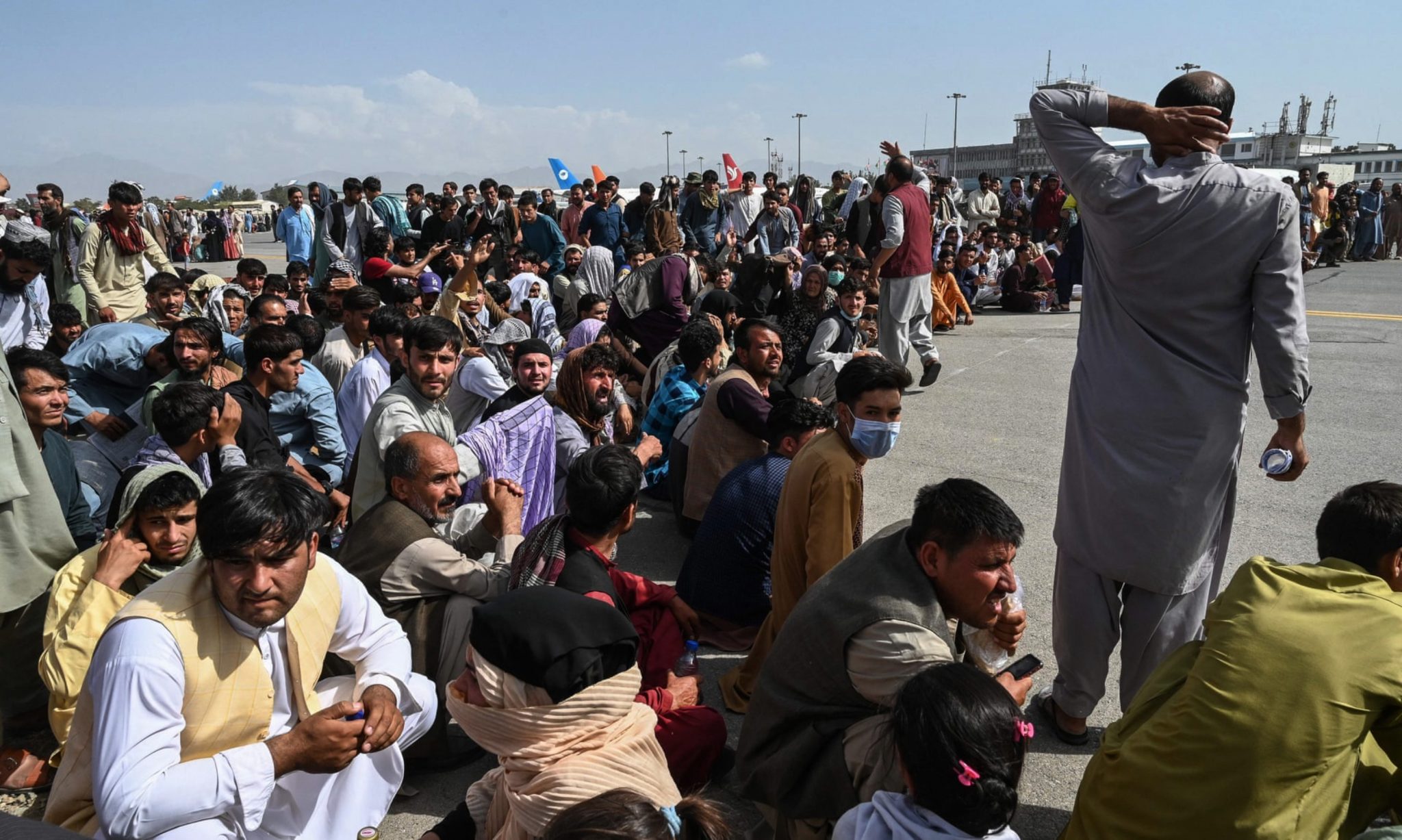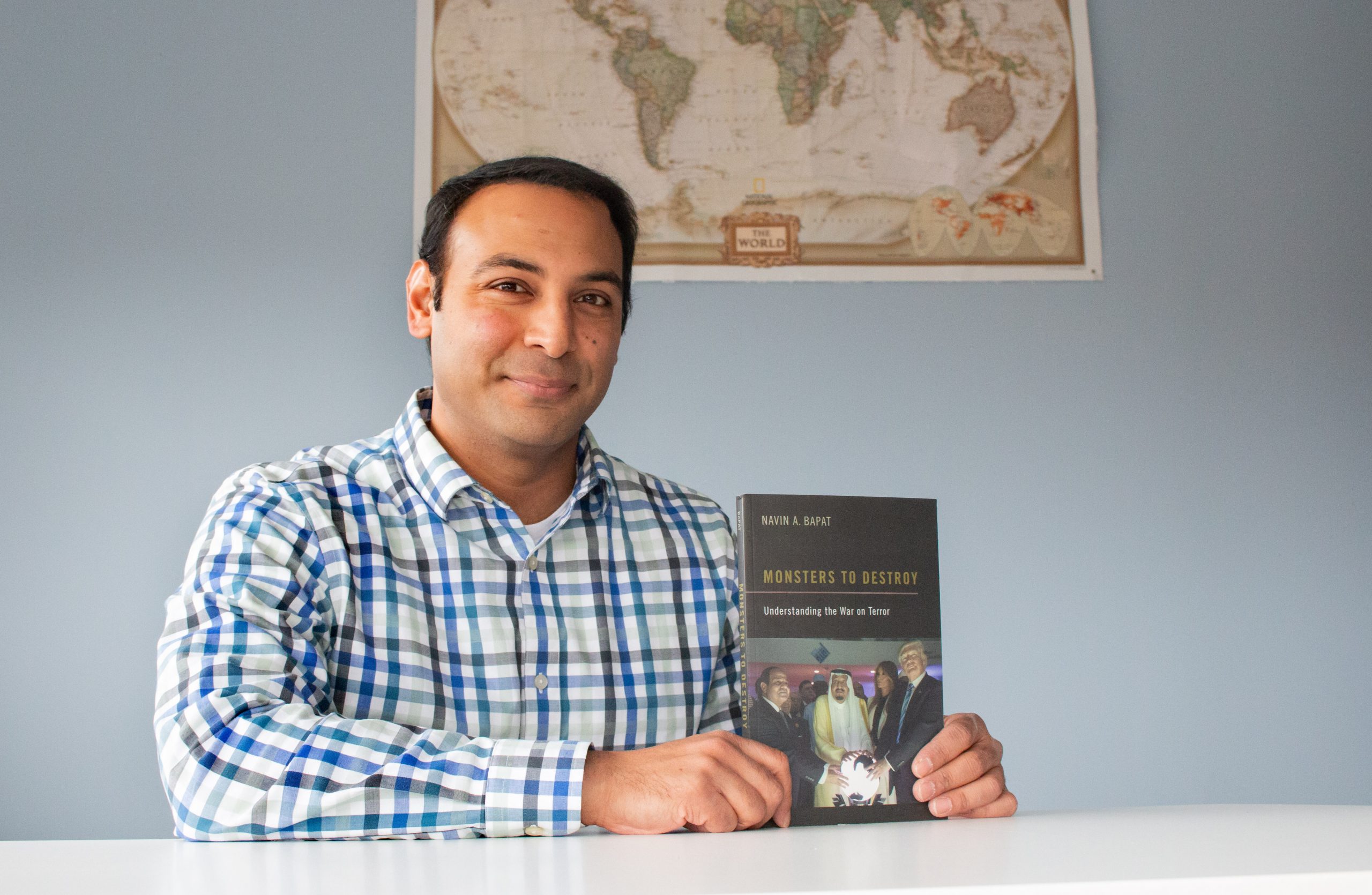In its 20 years in Afghanistan, the United States scored some victories in the war on terror, but terrorism expert Navin Bapat fears that the current U.S. withdrawal and Taliban takeover marks the end of tenuous social and educational reforms, especially for Afghan women.


The United States is withdrawing its troops from Afghanistan after two decades of fighting the Taliban insurgency. In the wake of this departure, the country’s Western-backed government has collapsed, the Taliban have seized control of the capital city of Kabul and many citizens are fleeing the country.
For perspective on the news from Afghanistan, The Well checked in with Navin Bapat, terrorism expert and chair of the peace, war and defense curriculum in UNC’s College of Arts & Sciences. Bapat is the author of Monsters to Destroy: Understanding the War on Terror.
If the United States went into Afghanistan seeking al-Qaida and Osama bin Laden, why were U.S. troops still there 11 years after bin Laden’s death?
Once Osama bin Laden was killed in 2010, the opportunity was there to extricate. And I believe the Obama administration actually sought extrication. But there was a fear of political consequence. There was always this belief that maybe if you put in tens of thousands more soldiers, “the surge,” and if you wait a little bit longer, maybe it’ll get better. It really is, in a sense, myopia. I wrote a piece on that. As long as the United States continued to prop up the [Hamid] Karzai regime and later the [Ashraf] Ghani regime, the regimes had no incentive to do anything but be corrupt. They would continue to gain from that occupation and not really do anything about the Taliban because they basically had a blank check and American blood.
Did the Afghan soldiers just give up?
I think that’s a considerable simplification of what actually happened. To put this in perspective, there’s been over 60,000 Afghans who have lost their lives in the course of this war and close to 2,500 Americans. So the Afghans were doing a considerable amount of the fighting. Often they weren’t paid, they weren’t given bullets, they weren’t given equipment — sometimes because of government corruption. They did their best under very terrible circumstances. This is a tragedy for them.
Some people are comparing our exit from Afghanistan to the end of the Vietnam War. Is that fair?
It’s not completely different. In both cases, the United States is extracting itself from the country, and the country is being taken over by a government that the United States was fighting against. That is consistent. When Saigon was evacuated, a few hours after that, Saigon fell and the war was over. In this case, the war is over right now, and the evacuation continues from Hamid Karzai Airport. There was footage that came out not too long ago showing Afghans trying to grab on to transport planes to try to get themselves out. Those images are just as terrifying and just as troubling as anything that came out of Saigon. I think that it is impossible not to make that parallel.
Who are the Taliban? And how are they different from al-Qaida?
Al-Qaida and the Taliban are not the same thing. They came from different sources. They have similar views of Islam, perhaps, but they’re not the same. The Taliban are predominantly a Pashtun insurgency that has a fundamentalist ideology. Al-Qaida is predominantly an Arab organization that was formed by Osama bin Laden in Saudi Arabia.
Why were the Taliban successful?
One of the things that allowed the Taliban to succeed in some areas is that they brought with them some form of a judiciary, where they had a set of rules. And while most people didn’t necessarily agree with them, at least the rules were predictable, whereas when you’re dealing with a corrupt government, things might be more arbitrary and less predictable.
After 20 years in Afghanistan, did the United States have any impact?
The United States did quite a few things in Afghanistan in terms of the war on terror. The United States did kill bin Laden. Also, for 20 years, the United States was able to build some reforms that were beneficial, so more people got education, and more women were able to make some social progress. But it was all very tenuous and only typically in the urban areas. And it was based on this continued engagement. But it wasn’t sustainable. And now I fear that most of these positive changes are going to be reversed. Right now, in Kabul, you’re starting to see more women stay inside and to wear the burqa, which is an anticipation of what life will be like.
What does U.S. withdrawal mean for stability in that region and for U.S. national security?
No one knows exactly what the Taliban are going to do, but one problem they have is that Afghanistan’s gold, treasuries and other assets are now in the United States. Since the Taliban, therefore, have no resources but need to govern, they may turn to violence to raise capital. Most of the regional states are trying to establish some diplomatic links with the Taliban. If they are dealing with refugee flows into their countries, that is often accompanied by political instability, so this region could be in for several years of potential difficult relations.
As for U.S. national security, if we look at historical data, terrorism as a tactic does not harm that many Americans and it never has. The one exception to that was September 2001. If you plot the data out, you see that 9/11 is a very, very significant outlier. My guess is that victory in Afghanistan for the Taliban may increase the probability that these groups will organize and start to engage in terrorism. But the key thing to remember is that the likelihood of terrorism happening is already really low.
By Susan Hudson, The Well
